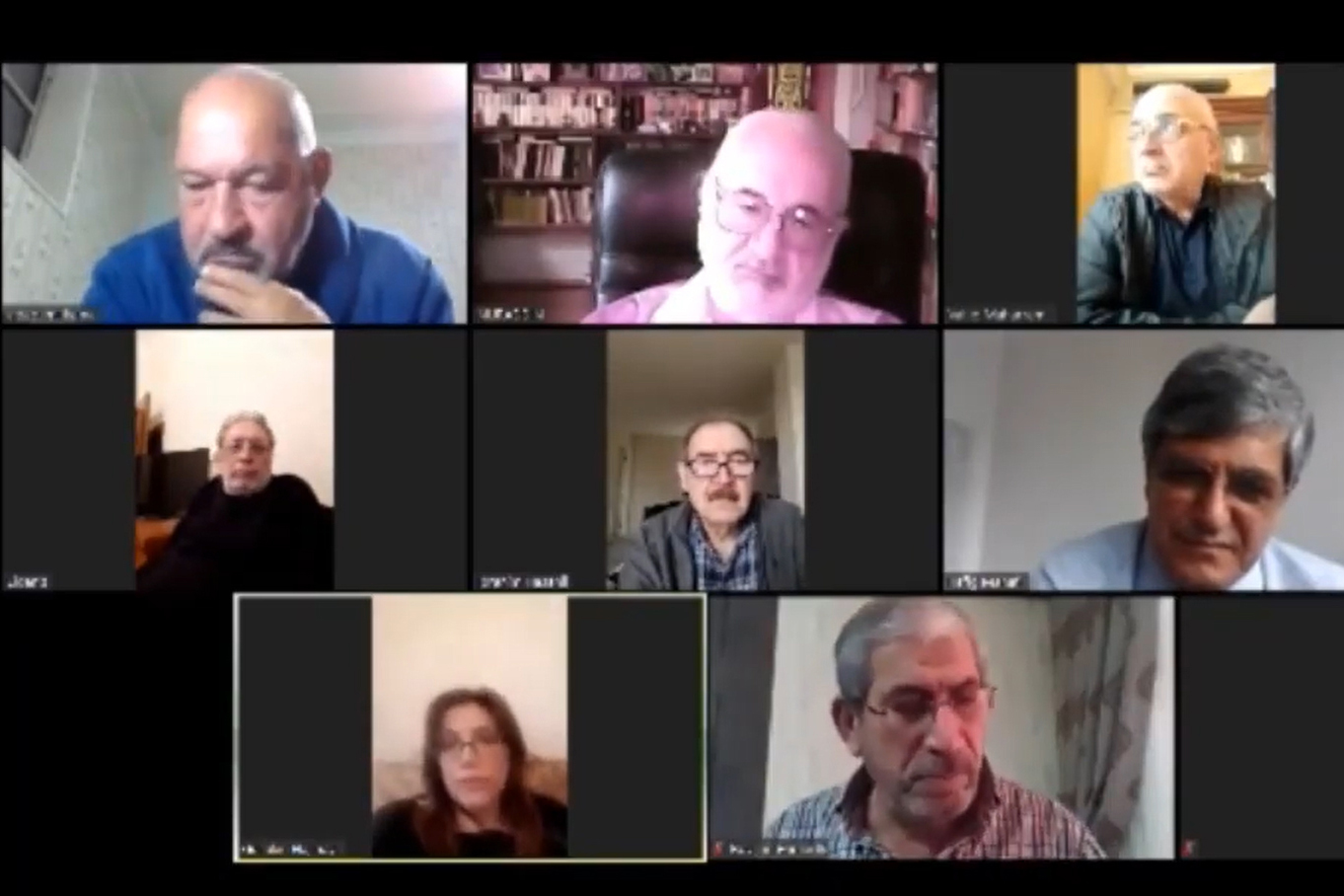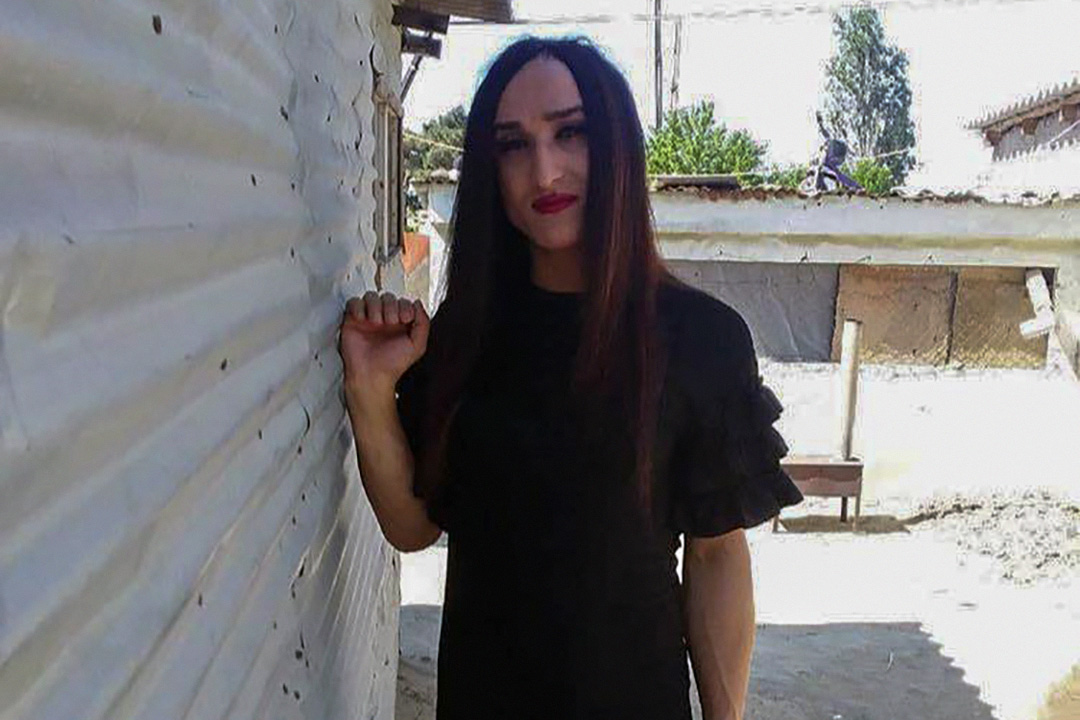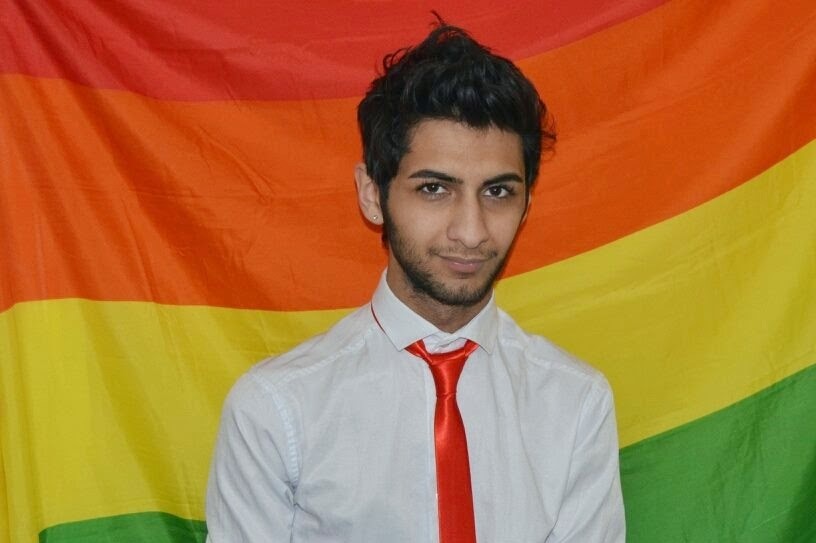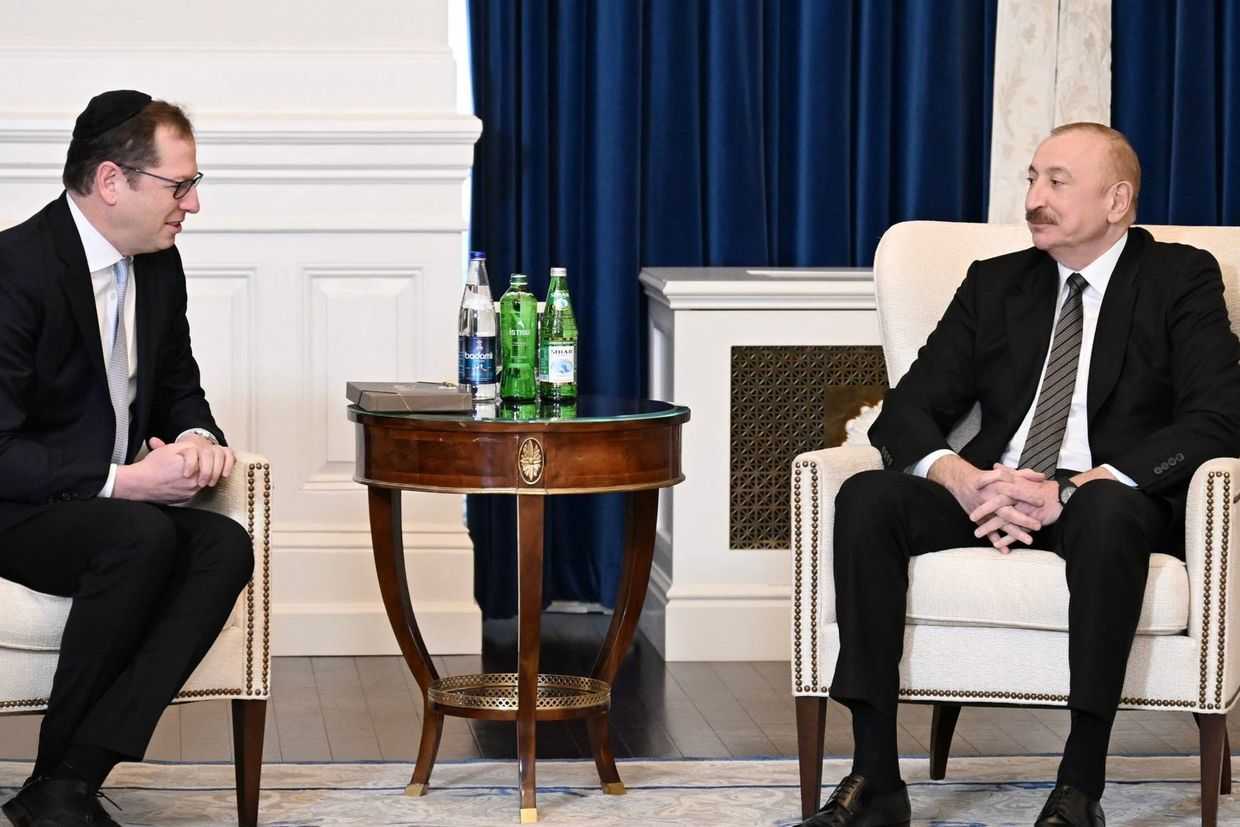
For the past six years, Azerbaijan’s lesbian, gay, bisexual and trans community has marked 22 January as a day to fight homophobic hate. The day was chosen after well-known queer rights activist Isa Shakhmarli took his own life in 2014.
Shakhmarli, 20, was the chair of Azad LGBT (Azerbaijan Free LGBT), a Baku-based advocacy group. He was found dead after hanging himself with a rainbow flag.
An openly gay activist, Shakhmarli left a note on Facebook. ‘I am leaving you, God bless you. This country and this world are not for me. I am going to be happy now. Tell my mother I loved her very much. I blame you all for my death. This world is not colourful enough for my colours. Farewell.’
In a 2013 interview, Shakhmarli revealed that his family considered his sexuality ‘an illness’.
‘I wish our society was not biased. Before hating, read about homosexuality on the Internet, learn about it, I want LGBTs to be brave… If you want, you can achieve’, he said.
Friends and other members of the community who came to participate in the burial were attacked by relatives of the deceased Shakhmarli.
After his family left the graveyard, it was quickly filled with activists and sympathisers. Members of the community covered his grave with the rainbow flag, which was torn overnight leaving Shakhmarli’s grave with visible traces of desecration. After this, activists stayed by his grave in shifts for several days to prevent further vandalism.
The news shook queer communities across the globe, launching several advocacy actions and protests. These included rallies in Mersin, Ankara, Istanbul, and Antep in Turkey against discrimination and violence targeting LGBTI+ people.
Another year of violence and hate
More than five years have passed since Shakhmarli’s death, but the situation in Azerbaijan remains difficult for many queer people.
Acts of violence, including rape and harassment, have not declined. Sometimes, the state itself, including law enforcement agents, are the source of such violence.
Vahid Aliyev, an LGBTI+ rights activist from the Baku-based Nafas LGBTI group, says there has been no progress on LGBTI+ rights in the country in the past five years. He says that besides the 2000 law decriminalisation homosexuality, no other law protecting LGBTI+ people has been adopted in Azerbaijan.
‘If we look at ILGA Europe’s annual reports, we are going backwards every year for LGBTI+ rights as a country’, Aliyev tells OC Media.
Aliyev says there are various factors that influence this, such as the ‘hunting’ of LBGTI+ people by the police in 2017 and 2019, the lack of legislation to protect LGBTI+ people, and widespread systemic discrimination against them.
According to the International Lesbian, Gay, Bisexual, Trans and Intersex Association’s (ILGA) 2019 report, at least 15 gay men and trans sex workers were detained by the police in Baku that year, and many were forcibly subjected to STI testing.
Some were fined for ‘minor hooliganism’ and others were sentenced up to 10–30 days of administrative detention for disobeying police.
In February 2019, the European Court of Human Rights called for Azerbaijan to account for the 2017 raids, where over 80 gay and trans people were detained and many were tortured and abused.
‘In 2020 alone, we can see that the media, the police, and the so-called opposition are erupting with hatred’, Aliyev says. ‘From the very first months of 2020, information about various phobias and hate crimes have been reported to Nafas every week.’
‘One case, for instance, is the online meeting of the National Council of Democratic Forces (NCDF) representing the opposition, where it was said that: “I am very sorry that Hitler did not exterminate the gays”.’

[Read more: Leaked Zoom meetings reveal homophobia and discord among Azerbaijan’s opposition]
Nafas LGBTI documented many more cases of violence and discrimination against LGBTI+ people in 2020.
In January a young lesbian woman who was studying in Russia was abducted in Azerbaijan. Ismayilova Sevgiya-Subhani escaped from her family through the Russian embassy in the country.
In February, the gay couple was harassed and pressured for kissing videos spread on social media. Currently, one of them has since taken refuge in Madrid.
[Read more: Azerbaijani queer couple ‘fear for their lives’ after Valentine’s Day video leaked online]
Both the pandemic and the restrictions put in place to counter it have affected the lives of LGBTI+ people in Azerbaijan in unique ways. Trans and gay sex workers, in particular, have suffered.
Nafas has provided material and moral support to several women during the quarantine period. However, financial support is not enough, and at a time of limited employment opportunities, on the eve of the outbreak of the virus, many trans sex workers were left with no option but to continue working. Nafas documented several hate-motivated attacks on trans sex workers in June and in July.

[Read more: One dead and another injured in attacks on transgender women in Baku]
One memorable event of 2020 was the march on 8 March, International Women’s Day, in which members of Azerbaijan’s LGBTI+ community also took part. Together with the organisers of the march, they rallied chanting ‘The free streets are ours’.
Many media outlets condemned the march, with one presenting it as ‘promotion of immorality in the name of “feminism” ’ and ‘legitimising LGBT rights in Azerbaijan, targeting the moral institution of society’.
A legacy of change?
Nafas LGBTI’s Vahid Aliyev says that despite the bleak situation, various positives have emerged over the years since Shakhmarli’s death.
He named the launching of the first and only LGBTI news platform Minority Azerbaijan, and the fact that International Day Against Homophobia, Transphobia, and Biphobia has been celebrated every year with the support of various embassies.
Several groups have also held gender and sexuality-focused festivals, Aliyev says, adding that initiatives such as Y-PEER, Nafas LGBTI, and Salaam Cinema have helped the community during the pandemic.
Reflecting on Isa Shakhmarli’s legacy, Lala Mahmudova, who now heads Shakhmarli’s organisation, Azad LGBT, says that his suicide shed light on many of the problems faced by LGBTI people in Azerbaijan.

She says that initiatives such as Azad, which was created by Isa, as well as Nafas LGBTI have also played a big role in this.
‘He committed suicide with the LGBTQIA+ flag, which meant that his suicide was linked to a big message’, Mahmudova tells OC Media.
‘The last words he wrote before his death indicates that his suicide was because of the homophobia’, she tells OC Media.
Mahmudova says that since 22 January 2014, a visible public presence for LGBTI+ people has been established in Azerbaijan, so that others can look at themselves and say: ‘Yes, there are people like me, my truth does not deserve to be hidden, to be humiliated, I am here.’








